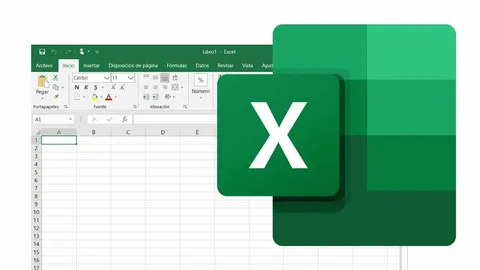Microsoft Excel is an amazing tool that offers tremendous flexibility and power for managing various business tasks. Its familiarity makes it a go-to choice for everything from accounting to project management, inventory tracking, and reporting.
But here’s the catch: Excel alone isn’t a scalable business solution. As your company grows, relying solely on massive spreadsheets can introduce inefficiencies, risks, and bottlenecks that limit your ability to scale effectively.
Let’s take a closer look at the signs that indicate it’s time to rethink your reliance on Excel and explore what lies beyond spreadsheets.
Excel for Business Is Great—Until It’s Not
We’re not here to bash Excel. In fact, we love it as much as anyone else. It’s a powerful tool that serves well for:
- Business analysis and financial management
- Inventory and order tracking
- Project management and time tracking
- CRM activities for simple customer management
- Creating charts, forms, and checklists
- Modeling unstructured data and running reports from external sources
- Migrating data or organizing it before it’s loaded into a new system
However, as your business grows and operations become more complex, these uses may outgrow Excel’s capabilities, turning the software from an enabler into a bottleneck.
Signs It’s Time to Rethink Your Excel Reliance
Spreadsheets can sneak their way into becoming core parts of a business. But there are clear warning signs that your reliance on Excel might be holding you back:
- Bloated Spreadsheets with Long Load Times
Spreadsheets with dozens of tabs take forever to open, frustrating users and slowing down productivity. - Overly Complex Calculations
Only a handful of employees understand the formulas—and even they aren’t sure why some of them exist. - Manual Data Entry Across Multiple Systems
Staff waste time re-entering the same data into different platforms, increasing the chance of human error. - Collaboration and Version Control Issues
Tracking who made what changes can be a nightmare, making it hard to ensure the data is accurate. - Inability to Add New Functionality
Your spreadsheet can’t accommodate new features, integrations, or workflows you need to stay competitive. - High Risk of Errors
Accidental changes to formulas or datasets can lead to incorrect decisions—and you might not even notice the errors until it’s too late. - Scalability Issues
As your business grows, Excel can’t keep up with the demands of larger teams, more data, and complex processes. - Dependence on Specialized Expertise
When only one person understands how everything works, your business is at risk if that individual leaves.
Looking Beyond Excel: What’s Next?
If your business is experiencing any of these challenges, it’s time to explore more robust solutions. Many organizations come to us with spreadsheets that have become unwieldy, and the path to improvement isn’t always straightforward.
Here’s how we guide the transition:
- Conduct a Deep-Dive Review
We analyze your current spreadsheets to understand what they’re doing and assess the workflows you want to maintain or automate. Often, businesses collect data they no longer need. - Focus on Future Goals
The new solution must align with your long-term plans, not just your current needs. It’s important to choose a platform that can scale as your business grows. - Explore the Right Solution: Off-the-Shelf vs. Custom
Based on your objectives and budget, we help determine whether off-the-shelf software will meet your needs or if a custom solution would be more effective.
Excel: A Great Tool, But Not a Complete Strategy
There’s no denying Excel’s usefulness, but it was never intended to be the backbone of your business strategy. As your business grows, so do the limitations of spreadsheets, turning them into a liability rather than an asset.
The key to sustainable growth is knowing when it’s time to move beyond Excel. Whether it’s adopting a specialized tool, integrating multiple platforms, or building custom software, the next step is finding the right fit for your business goals.
If you’re ready to move beyond Excel, Calnetic can help. We specialize in evaluating your processes, identifying the right software solutions, and implementing systems that grow with your business. Reach out today, and let’s take your business strategy to the next level.




